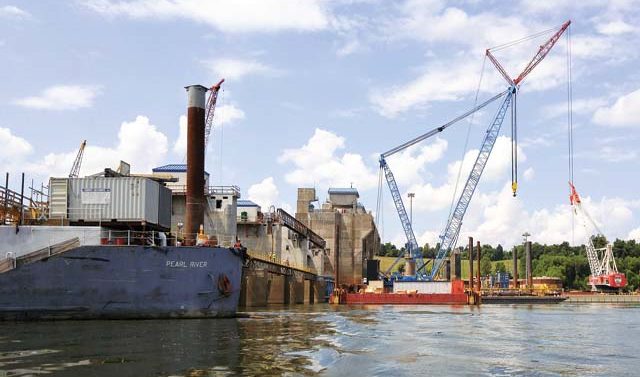The House of Representatives on Thursday boosted the Corps of Engineers’ funding for fiscal year 2018, rejecting the Trump administration’s initial budget move to reduce waterways spending.
The 256-167 vote for an omnibus appropriations bill set the Corps’ Civil Works mission at $6.83 billion, up by $789 million from fiscal year 2017 funding. The administration had proposed reining the spending back to just over $5 billion. Major Gen. Richard Keiser, commander, U.S. Army Corps of Engineers, Mississippi Valley division said at an inland waterways conference on Tuesday in New Orleans that the funds are "to get after damages. It's important we work together to spend those funds on the right missions," he said.
That is a big relief in inland waterways advocates, already disappointed by an infrastructure plan that would leave more funding responsibilities up to the states, and raise the possibility of new fees or tolls on waterway users.
Now under the House bill, Inland Waterways Trust Fund projects will receive full use of estimated annual revenues, plus additional balances from the Inland Waterways Trust Fund. At least $399 million will be made available for priority navigation projects in FY2018, a 128% increase over the administration’s request of $175 million.
The Construction account is allocated $2.085 billion, more than a double the administration’s $1.02 billion proposal.
The Harbor Maintenance Trust Fund gets funded at $1.4 billion, up 50% above the President’s request of $933 million.
The Waterways Council, Inc. applauded the vote, and was happy to see the bill did not include the administration’s proposal for a new 10-year, $1.037 billion user fee to be paid by commercial operators.
“WCI is grateful for the bi- partisan action by the House today in passing the record funding levels for the Corps of Engineers to continue its critical work on construction of four priority navigation projects across the inland waterways transportation system,” said Michael J. Toohey, WCI president and CEO, in a statement after the vote. “We hope there will be quick passage in the Senate and then the President will sign the bill into law.”





